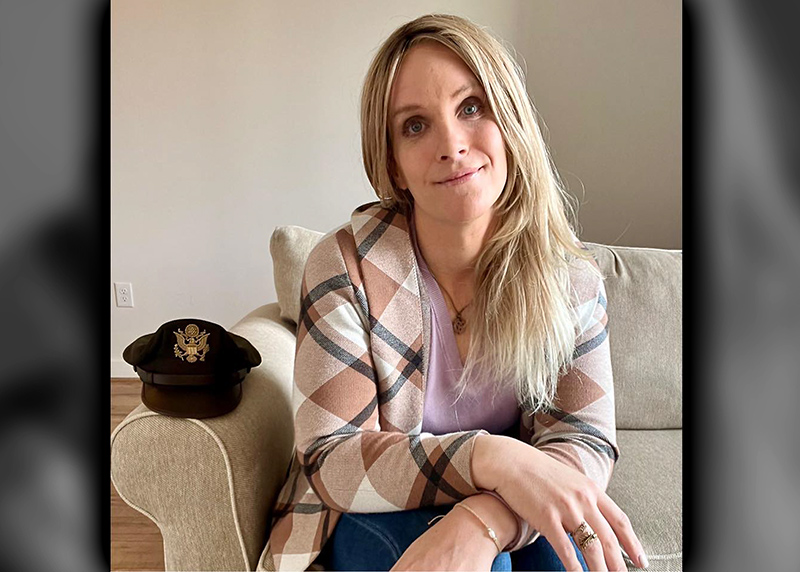Council Committee Passes Two Pro-LGBT Bills
Legislation allowing District residents to obtain new gender-specific birth certificates held up as 'model bill'
The D.C. Council’s Committee on the Judiciary and Public Safety passed two bills intended to benefit members of the LGBTI community Thursday, allowing District residents to amend the gender on their birth certificates to align with their gender identity, and expanding the ability for people to be authorized as a marriage officiant for specific weddings.
The committee, led by Councilmember Tommy Wells (D-Ward 6), unanimously approved an amended version of the JaParker Deoni Jones Birth Certificate Equality Amendment Act of 2013, which amends the Vital Records Act of 1981 to allow individuals to request a new birth certificate that would reflect their gender identity. To amend the gender or name on the new birth certificate, a person must provide a written request and a signed statement from a licensed healthcare provider stating that the individual has undergone a gender transition.

Councilmember Tommy Wells
The bill, named after Deoni Jones, a transgender woman who was stabbed and killed while waiting at a bus stop in February 2012, was introduced by Councilmember David Catania (I-At-Large) and co-introduced by Wells and Councilmembers Jack Evans (D-Ward 2), Mary Cheh (D-Ward 3), Kenyan McDuffie (D-Ward 5), David Grosso (I-At-Large) and Council Chairman Phil Mendelson (D). Most of the remaining councilmembers signed on as cosponsors, with the exception of Councilmember Marion Barry (D-Ward 8).
In passing the bill, the Judiciary Committee made a number of substantial amendments to the original text that incorporated seven criticisms offered by LGBTI community activists hoping to pass a law that could serve as a model for other states.
One of those changes to the bill eliminates the so-called ”publication requirement” for people seeking a name change, regardless of their gender identity or reason for seeking such a change. The bill does this by repealing a section of the D.C. Official Code that previously required any individual seeking a name or gender change to have that information published in a general circulation newspaper for three consecutive weeks. Proponents of the change say the old requirement requires the person seeking the name or gender change was cost-prohibitive for some, and, moreover, is outdated and a relic from a time when people relied largely on newspapers for their own information consumption. Eighteen other states have already independently eliminated publication requirements for those seeking a change.
Other alterations to the bill included repealing, rather than revising, older language from the D.C. Official Code that required a court order and proof of a surgical procedure for those seeking to change the gender on their birth certificates; and allowing those who seek such changes to obtain a ”clean” birth certificate that would not be marked ”amended” or give any other indication there had been a change in gender designation.
The bill also allows any licensed health care provider, not just those licensed in the District of Columbia, to sign the statement attesting to the fact that a person has undergone a gender transition. In pushing for this change, activists argued that requiring a practitioner to be licensed in the District would exclude a number of doctors in Maryland and Virginia who specialize in treating transgender patients who reside in the District but seek competent medical care elsewhere.
Another change added clarifying language in the signed statement that would attest that the individual had undergone ”surgical, hormonal or other treatment appropriate for the individual,” in order to ensure people would not have to subject themselves to treatment deemed unnecessary by their health care provider.
The revised bill also included new language addressing the issue of people with intersex conditions, meaning those that do not have genitalia that can be distinctly classified as male or female. Those with intersex conditions are often forced to undergo surgery after birth to adhere to one particular gender that may not align with their gender identity. The new law would allow that gender designation to be corrected if needed, once the person becomes older and their gender identity more developed.
A final change to the bill allows any District resident to seek a declaration by D.C. Superior Court that recognizes the change of gender. In addition, District residents born in other states or foreign jurisdictions are able to obtain a court order from D.C. Superior Court that directs the birth state or jurisdiction to amend the original certificate or issue a new birth certificate with the appropriate gender designation.
During a May 16 hearing, District resident Alyssa Majano, who was born in Texas, testified that this last provision would allow her to obtain a court order to require Texas to change the gender designation on her birth certificate. In addition to Majano, a number of other witnesses testified that, under current law, where an amended birth certificate is marked ”amended” and draws attention to the change of gender, transgender people can be discriminated against or denied employment by employers uncomfortable with transgender individuals.
Andy Bowen, a local transgender activist and the driving force behind the bill, said she was pleased with the unanimous vote and the adoption of all seven recommendations made by representatives for the District’s transgender community.
”This is a massive improvement for people’s quality of life and opportunity for advancement,” Bowen told Metro Weekly after the vote. She said she hopes the bill will be able to serve as a model for other states wishing to reform their laws to be more trans-inclusive.
The bill now heads before the full Council, where it must be voted upon and passed twice. According to Charles Allen, the chief of staff for Councilmember Wells, both votes are expected to occur sometime before the Council’s July 12 recess. Once passed by the Council, Mayor Vincent Gray (D) is expected to sign the bill into law, after which it will undergo a 30-day congressional review period before taking effect. Allen said he expects the law to take effect sometime in the fall.
”This should be a model bill,” Allen said. ”To the extent that we can author the most inclusive and respectful legislation, we want to be that model. We would welcome other jurisdictions to follow suit.”
The Judiciary Committee also passed the Marriage Officiant Amendment Act of 2013, which allows those over the age of 18 who are not clerks, judges or religious officials to obtain authorization to perform a marriage ceremony, provided they have been authorized and pay a registration fee of no more than $25. Among those who may be designated as officiants are the mayor of the District; a ”civil celebrant,” meaning someone who is a member of a secular or non-religious organization; a temporary officiant who has been authorized by the clerk of D.D. Superior Court; or the couple marrying.
By expanding the group of people who may be designated as officiants, the legislation provides more options for couples, particularly same-sex couples who may be interested in arranging a ceremony officiated by someone other than a court clerk or judge.
While religious clergy may be designated as officiants of a marriage under existing law, no priest or clergy member is required to perform same-sex marriages if they violate personal or religious beliefs. As the committee stated in its report on the bill, ”the intent of Bill 20-118 is to acknowledge the rights of non-religious or secular citizens to have a marriage celebrated by an officiant of their choosing, just as religious citizens do today.”
Support Metro Weekly’s Journalism
These are challenging times for news organizations. And yet it’s crucial we stay active and provide vital resources and information to both our local readers and the world. So won’t you please take a moment and consider supporting Metro Weekly with a membership? For as little as $5 a month, you can help ensure Metro Weekly magazine and MetroWeekly.com remain free, viable resources as we provide the best, most diverse, culturally-resonant LGBTQ coverage in both the D.C. region and around the world. Memberships come with exclusive perks and discounts, your own personal digital delivery of each week’s magazine (and an archive), access to our Member's Lounge when it launches this fall, and exclusive members-only items like Metro Weekly Membership Mugs and Tote Bags! Check out all our membership levels here and please join us today!

























